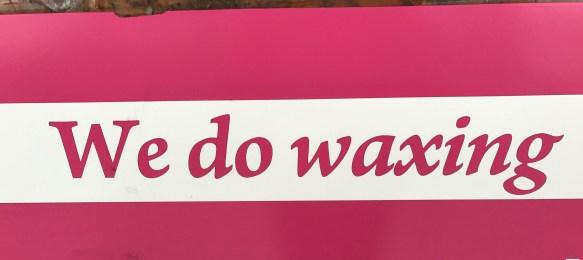New Yorker that I am, I don’t often think about compass directions. I go uptown or downtown, and to the East or West Side. So this sign caught my attention as I walked around Seattle last week:

My first impulse was to check the position of the sun and try to determine where, exactly, south was. I located the sun easily enough, but I’m staying in a house with a two-month-old. Was it morning or afternoon? I didn’t know. Nor did landmarks help, because my knowledge of Seattle geography is hazy at best. Next I looked at parking patterns. The sign was close to a corner; only a micro-car could squeeze into the bit of curb in front of the sign. That direction was probably not south. Behind the sign were maybe fifty parked cars. Law-abiding Seattlites are unlikely to flout parking rules in such large numbers, I reasoned — no south there, either. At last I figured out the true meaning. Listen up, Oregonians! Pay attention, Californians! You need to head north for parking. As I pondered the meaning of the sign, by the way, I decided it was fortunate I wasn’t driving a car at the time. I might have hit the tree while decoding.
And while I’m on the topic of absurdities — and I am — here’s a ticket stub from a play I saw recently:

I don’t mind paying for the ticket, and I’m semi-okay with the service charge. But paying a fee for a fee is going too far, in the same category as a charge for “shipping and handling” when I’m standing at a box office, holding my hand out for the ticket, which the cashier places on my palm. Why is that “shipping and handling”? At Madison Square Garden, it is.
One more:

Isn’t the very definition of “crime” something that is “punishable by law”? What else would it be, a crime rewarded by free ice cream cones?
It’s July 4th, America’s day to celebrate our independence — which apparently includes the right to hang silly signs and impose ridiculous fee fees. Enjoy your barbecue and your right to express yourself, absurdly or not.





























